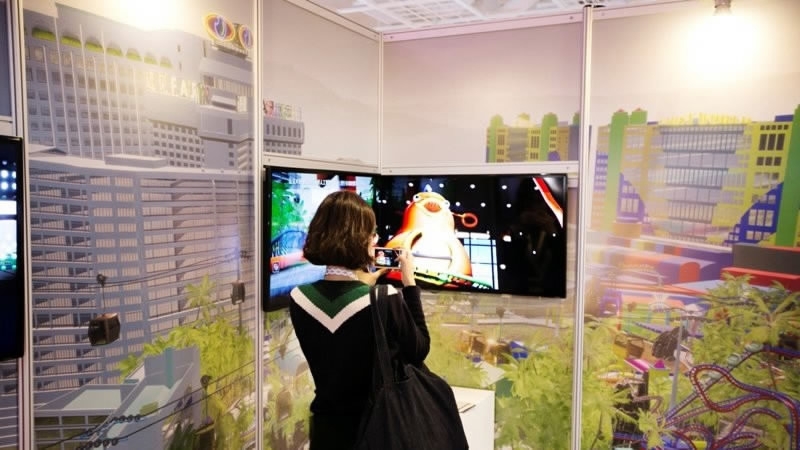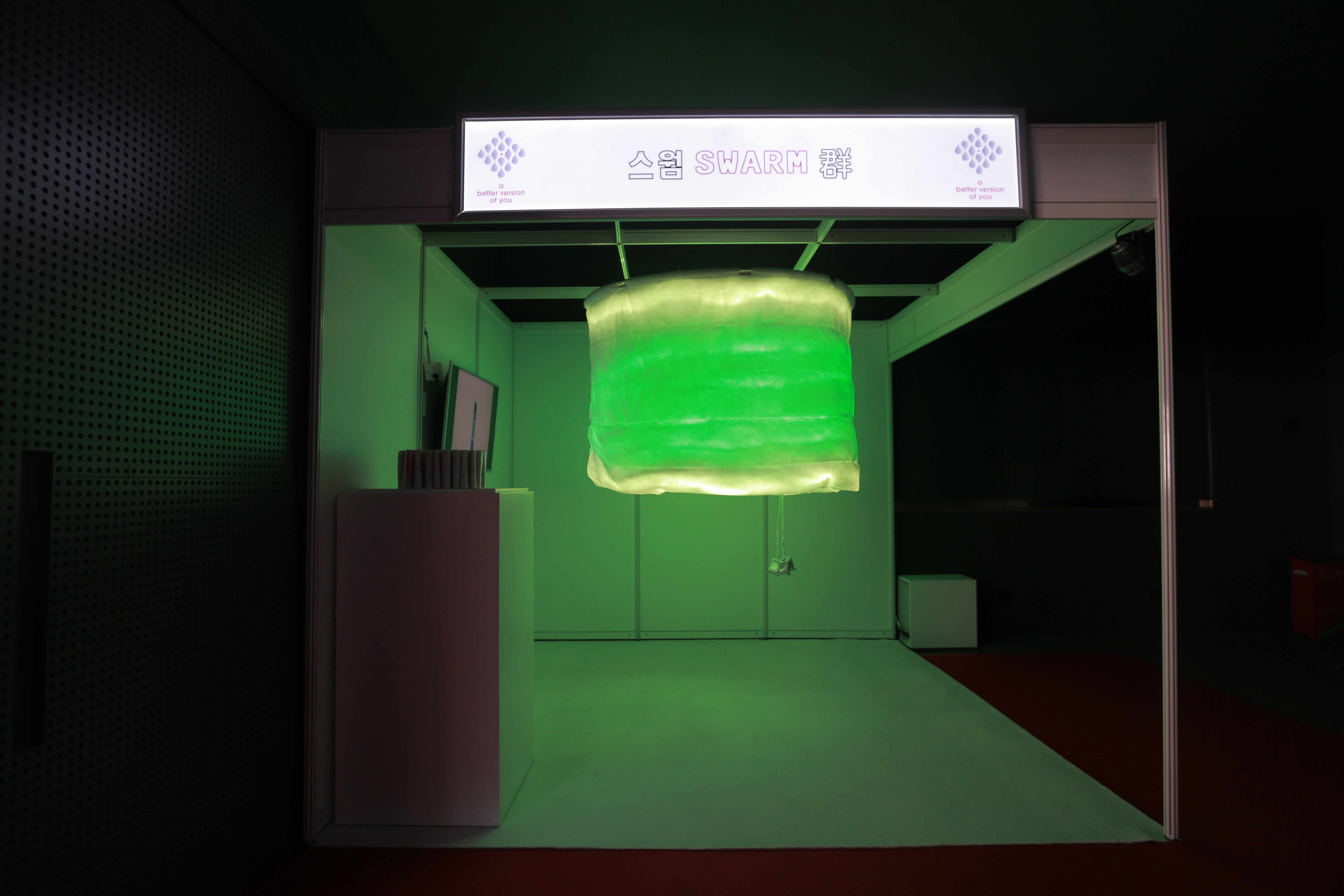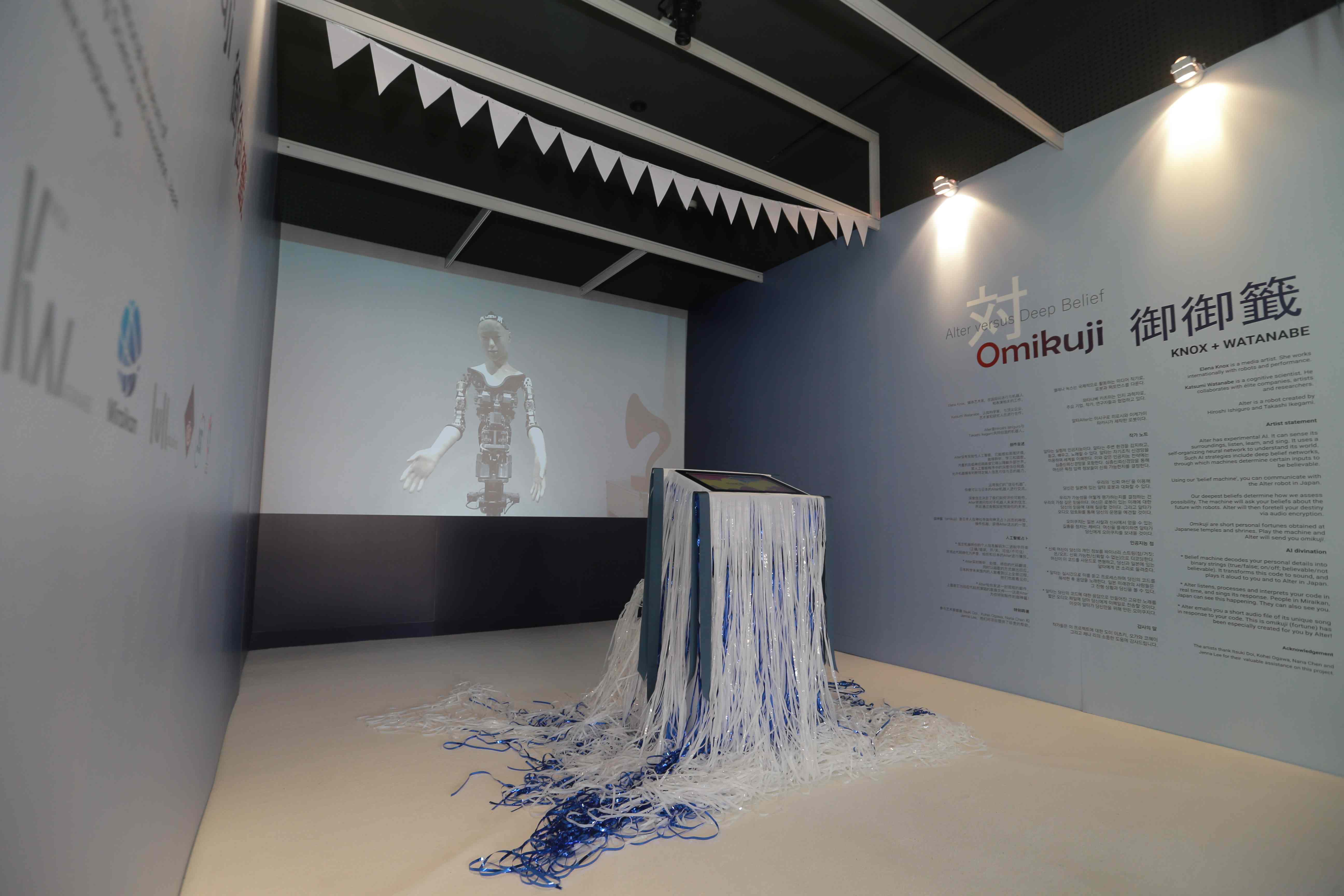
Culture
17:11, 27-Mar-2018
Art exhibition disguised as a tech fair opens in Beijing
By Shen Li

A new exhibition blurring art, tech and business debuted in Beijing’s famed art district.
Artists made technological progress, with main focus on their work in “A Better Version of You” exhibit, which was previously held in Seoul, and now graces the Goethe-Institut in the capital’s 798 art zone.
From self-learning machines and neural networks, to swarm-based urban planning and personalized experiential gaming, the exhibit questions the social and political consequences of artificial intelligence and scientific progress.

Art exhibition. /Photo provided by Goethe-Institut
Art exhibition. /Photo provided by Goethe-Institut
"There's really no other way if you want to explore the condition of technology in our society in our daily lives by looking at what the companies are doing. So this is why we have this idea," said Nina Franz, the commissioner of the exhibition.
The exhibit, however, brings more than aesthetic pleasure to its visitors. The Goethe-Institut’s Dr Clemens Treter noted that business will be conducted there.
"The idea of bringing up these technologies in a trade fair context, it would be the usual context that these technologies are discussed. They are sold, there will be contracts and investments because all these kinds of things would influence the development of technologies. So this is the perfect framework."
A notable project there is Omikuji, which is a livestream event between Japan’s National Museum of Emerging Science and Innovation (Miraikan) and the Goethe-Institut in Beijing.
The Omikuji are short fortunes often obtained at Japanese temples or shrines. This time, you don't get it from a fortune teller, but from an AI agent.
The event focuses on Alter, a new robot with experimental AI that uses a self-organizing neural network to classify its surroundings.

"Omikuji" created by Elena Knox & Katsumi Watanabe. /Photo provided by Goethe-Institut
"Omikuji" created by Elena Knox & Katsumi Watanabe. /Photo provided by Goethe-Institut
Such AI strategies include deep belief networks, through which machines determine certain inputs to be believable.
Media artist Elena Knox, co-creator of this installation, says she's curious to know how we as humans learn to believe, and how the arrival of AI would affect our beliefs.
She told CGTN, "We've put a lot of faith into AI. Maybe we shouldn't, because it's only us teaching it how to believe. I'm interested in the fact that people just assume that AI knows what's true. It's possible that it's true. So I wanted to play with that idea a little bit."
”A Better Version of You” will run until April 1.

SITEMAP
Copyright © 2018 CGTN. Beijing ICP prepared NO.16065310-3
Copyright © 2018 CGTN. Beijing ICP prepared NO.16065310-3